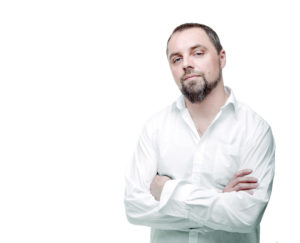How do we measure true success?
Thoughts on parashat Miketz
Menachem Mirski
We live in the age of the individual. We are all supposed to be slim, pretty, successful, prosperous, happy, extroverted and popular. The perfect self – that’s the goal our culture constantly encourages us to achieve and we see this everywhere: in advertising, in the press, all over social media. We are told that to be this person you just have to follow your dreams, that our potential is limitless, that we are the only source of our own success.
This image of a perfect self matches to a significant extent the 17 years old Joseph, before he was sold to Egypt by his brothers. Adored by his father, young, smart, arrogant, in colorful clothes, eloquent and articulate. He was also a dreamer pursuing his dreams, not particularly bothered by what other people thought about him.
 However, this model of the perfect self can be actually very dangerous. People are very often suffering under the torture of this impossible fantasy. Yes, the opportunities we have are incomparably greater than those of our grand-parents, for example. We have instant access to enormous resources of information, knowledge; it all opens numerous opportunities before us. But because way more people have the same access and the same opportunities we have, the competition is also greater. The paradox of our times is that we can be perfectly safe, secure, have access to advanced healthcare, have well paid jobs, be able to provide for our families – we can be doing very well in many areas of life and can still be depressed – because we didn’t get a promotion, raise or we don’t particularly like our job. Or our new project or new social-media group turned out not be as successful as we initially expected. There are millions of people in the West who are successful, are living perfectly functioning lives, who are safe and secure, have families and friends, money, healthcare and everything they need, and yet they wake up everyday feeling like a failure. The unprecedented social pressure to be more and more successful, in everything, is leading to increases in depression and suicide.
However, this model of the perfect self can be actually very dangerous. People are very often suffering under the torture of this impossible fantasy. Yes, the opportunities we have are incomparably greater than those of our grand-parents, for example. We have instant access to enormous resources of information, knowledge; it all opens numerous opportunities before us. But because way more people have the same access and the same opportunities we have, the competition is also greater. The paradox of our times is that we can be perfectly safe, secure, have access to advanced healthcare, have well paid jobs, be able to provide for our families – we can be doing very well in many areas of life and can still be depressed – because we didn’t get a promotion, raise or we don’t particularly like our job. Or our new project or new social-media group turned out not be as successful as we initially expected. There are millions of people in the West who are successful, are living perfectly functioning lives, who are safe and secure, have families and friends, money, healthcare and everything they need, and yet they wake up everyday feeling like a failure. The unprecedented social pressure to be more and more successful, in everything, is leading to increases in depression and suicide.
Our biblical Joseph, after many perturbations, also achieves great success. His success is so great that he is willing and able – in his opinion – to completely forget the ‘old times of his misfortunes’:
Before the years of famine came, Joseph became the father of two sons, whom Asenath daughter of Poti-phera, priest of On, bore to him. Joseph named the first-born Manasseh, meaning, “God has made me forget completely my hardship and my parental home.” (Genesis 41:50-51)
Joseph does not become depressed; the Torah does not mention anything about that. What do we then do wrong with our lives? There are several things worth mentioning here. One of the problems is that we compare ourselves to others, in particular to hyper-successful people. We measure our social status by comparing ourselves to those of much higher status, often assuming that their initial social status was the same as ours. Thus, rather than comparing ourselves to others we should compare ourselves to ourselves a few years ago, to the people we were before. Another thing is that we indulge in all kinds of illusions that the internet creates for us and we don’t actually know what is the real life of those we compare ourselves to. It’s pretty often the case that if we really knew what these people are dealing with in their lives we wouldn’t want to be in their place, no matter how successful they are in other realms. The last thing I will mention here, which is certainly not exhaustive of all the things we can do better, is what we can directly learn from Joseph’s story: the ultimate goal of his tremendous success was to help and save his family. Therefore, at the end of the day the most important thing is what we give back to our family or community. You can be a hero in your own life but you can also be a hero for others – one does not exclude another, on the contrary, these objectives are compatible and mutually supportive. If we know about it way ahead and plan our life accordingly the risk that we will lose our sense of direction and meaning of life is very small.
Shabbat shalom,

Menachem Mirski is a Polish born philosopher, musician, scholar and international speaker. He earned his Ph.D. in Philosophy and is currently studying to become a Rabbi at the Ziegler School of Rabbinic Studies. His current area of interests focus on freedom of expression and thought as well as the laws of logic as it pertains to the discourse of ideology and social and political issues. Dr. Mirski has been a leader in Polish klezmer music scene for well over a decade and his LA based band is called Waking Jericho.

Dodaj komentarz